5 takeaways from the Detroit NAACP's June Jubilee kick off summit
- Oops!Something went wrong.Please try again later.
- Oops!Something went wrong.Please try again later.
Conversations about policing, Black home ownership and critical race theory took center stage Thursday at the first event kicking off the Detroit Branch NAACP's June Jubilee.
The Freedom Walk Summit, which took place at the Wayne County Community College District Northwest Campus, is part of a four-day lineup honoring the 60th anniversary of Dr. Martin Luther King Jr.'s Detroit Walk to Freedom and the ongoing fight for justice and equality. Thursday's speakers — from city officials to scholars — talked about the historical context of the iconic march and how Black history is American history, and how it cannot be erased.
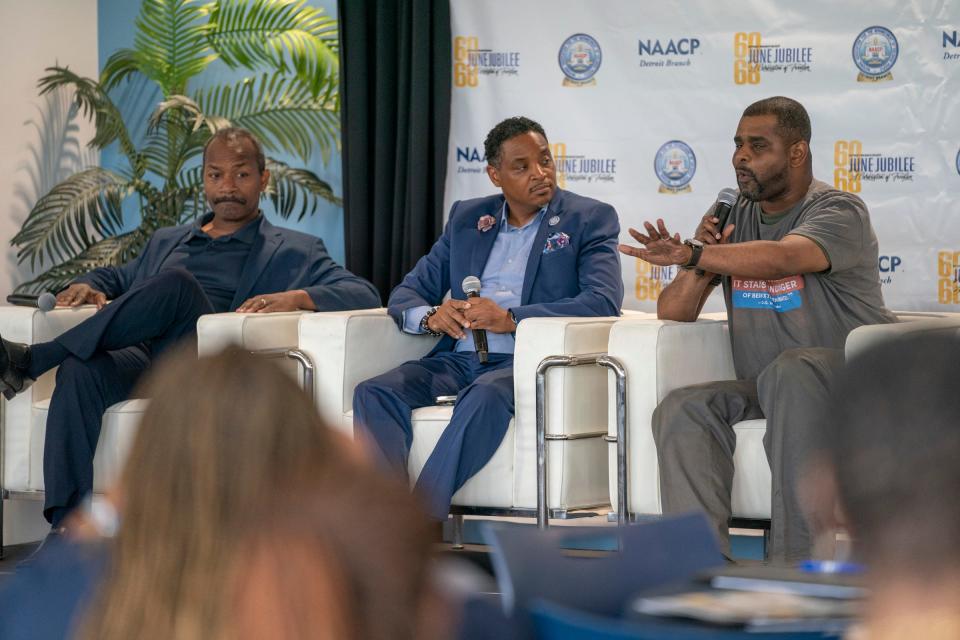
The Walk to Freedom took place on June 23, 1963, to decry segregation and inequalities around wages, education and housing, according to Wayne State University's Walter P. Reuther Library. Community activists, labor organizers, clergymen and government officials were among the more than 125,000 people who participated.
It was in Detroit where King delivered a version of his famous "I Have A Dream" speech, just a few months before the historic March on Washington. King delivered the address at Cobo Hall (now called Huntington Place) at the end of the Detroit march.
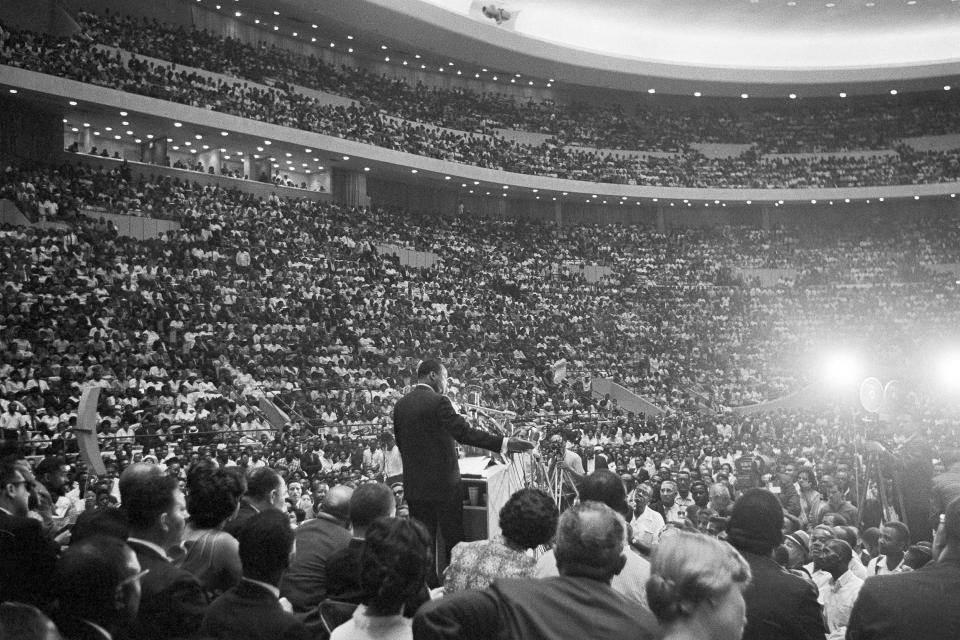
More: Detroit NAACP to honor local, national leaders at June Jubilee events
More: Opinion: Detroit celebration of famous MLK speech informs the ongoing movement
On Thursday, Gov. Gretchen Whitmer commemorated June 22 to 25 as "June Jubilee: A Celebration of Freedom," to honor the legacy of King and the efforts of the Detroit Branch NAACP.
June Jubilee events also include a commemorative walk down Woodward Avenue, the unveiling of a statue of King at Hart Plaza and the NAACP's annual Fight for Freedom Fund dinner. More information about the events is available at www.detroitnaacp.org.
Here are five key takeaways from the Freedom Walk Summit.
1943 riot fueled march 20 years later
The Detroit Race Riot of 1943 was the culmination of racism, poor living conditions and unequal access to services, according to the Detroit Historical Society. Black residents were relegated to certain neighborhoods and Black workers faced discrimination at their factory jobs.
"The 1963 Detroit Walk to Freedom is based in the 1940s," Jamon Jordan, the city of Detroit's official historian, said in a discussion with Ken Coleman, a Michigan Advance writer who focuses on history and civil rights, and Kevin Tolbert with the UAW International.
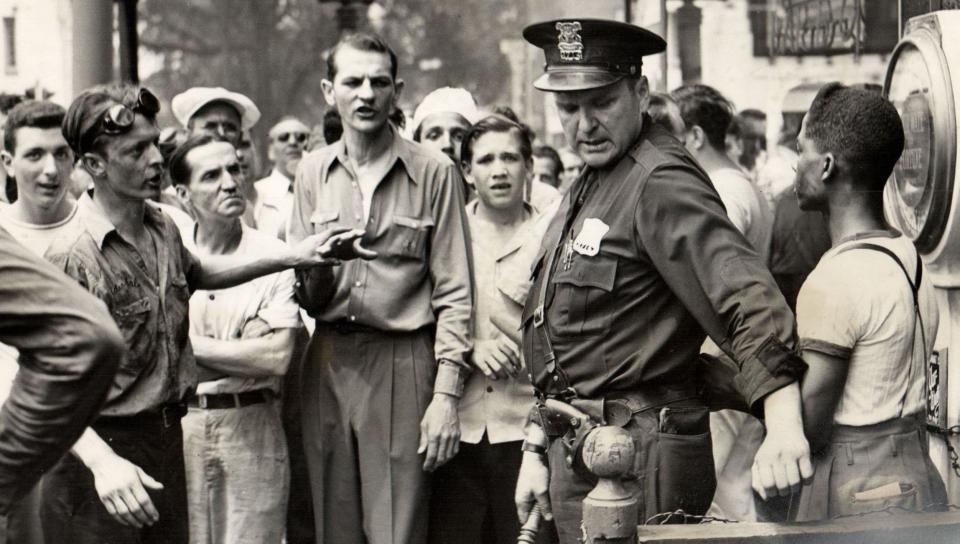
In June 1943, nearly 100,000 people packed Belle Isle, where Black and white youths fought. Nine white and 25 Black people died. Police killed 17 African Americans. No white person was killed by police violence.
Twenty years later Detroit's King-led march took place.
"When we get to 1963 and Dr. King is giving his speech he brings up a number of issues that Detroit is dealing with: housing segregation, school inequality, job discrimination and we can add one more — police brutality and police killings. We're still dealing with those issues today," Jordan said.
What does police and criminal justice reform look like?
During a panel about policing, public safety and potential reforms, Detroit Police Chief James White said his department is increasingly responding to a large number of mental health calls since the onset of the COVID-19 pandemic. Police reform, he said, looks like pairing officers with mental health professionals.
Darryl Woods — founder of Better Together, a group seeking to bridge the gap between local police and residents — emphasized the need for more mental health resources.
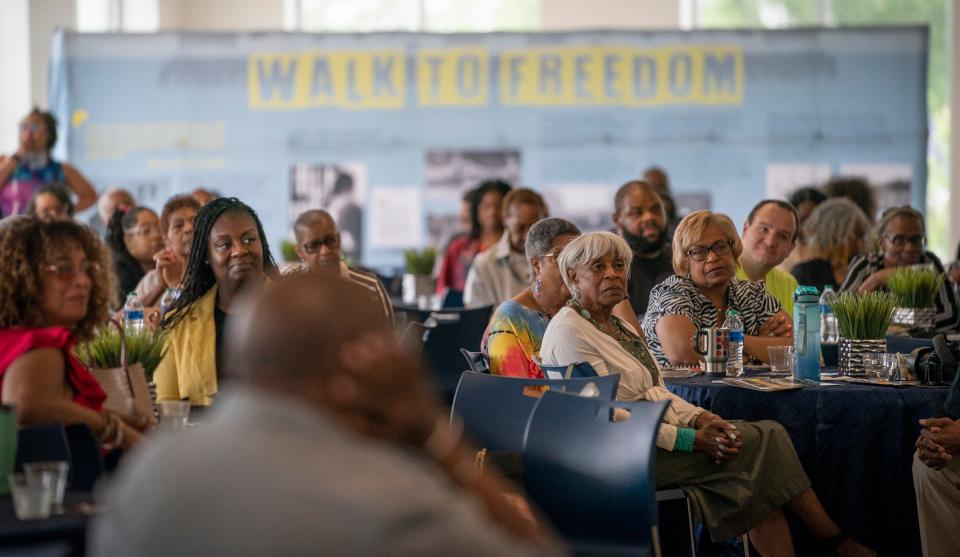
"We need the mental health beds funded in the city of Detroit and Wayne County," Woods said.
Erin Keith, a staff attorney at the Detroit Justice Center, said reform is changing laws around sentencing juveniles to life without the possibility of parole and overhauling the cash bail system, which as Keith puts it, is: "the process of paying money or leveraging assets for one's freedom while awaiting further court proceedings or a trial."
Public safety, Keith said, goes beyond policing, jails and prisons. It's not being a victim of a crime. It's a community where people don't commit crimes in the first place. It looks like not being in danger of losing a home because of an illegal eviction.
"Public safety is making sure that people have the tools that they need to survive," Woods added.
Critical race theory is about structural inequality
Kimberlé Crenshaw, a pioneering scholar on race and racism, spoke about recent laws attacking critical race theory — a framework that sees race as a social construct and systemic racism as engrained within society, from education to housing.
Crenshaw pointed to Florida's "Stop Woke Act," which restricts how race is addressed in schools, colleges and workplaces, as an example of erasing how racism still exists in society.
"This is not just about a couple of ideas. It's about our future, and it's about our democracy," Crenshaw said.
Black history is American history
Author and professor Michael Eric Dyson also talked about critical race theory and how it has been misrepresented.
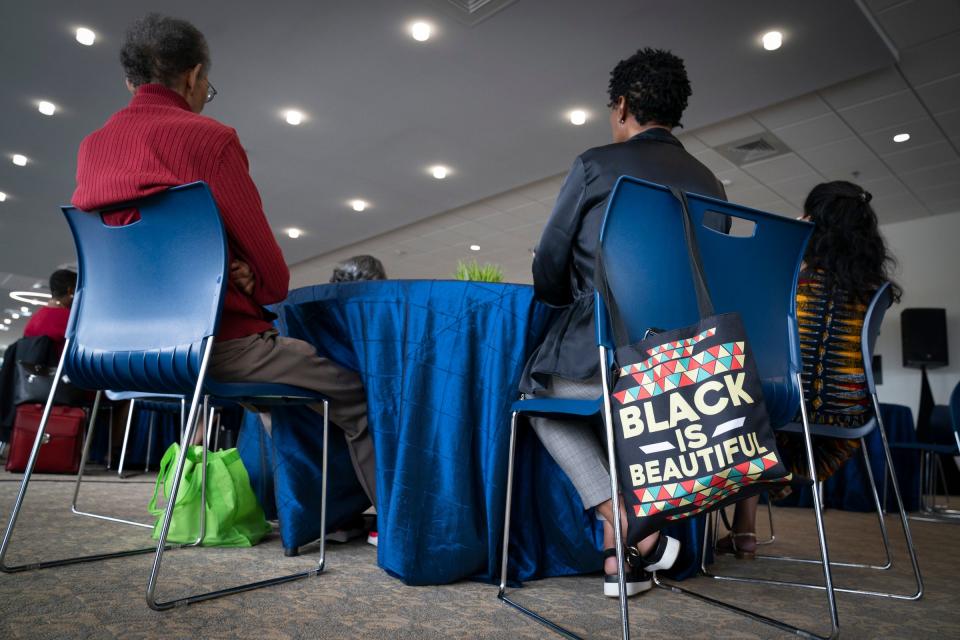
"People trying to convince you that CRT is a bad thing have missed the boat on what Black liberation is all about," he said.
Dyson said BHM (Black History Month), BLM (Black Lives Matter), DEI (Diversity, Equity, and Inclusion), AP (Advanced Placement) and CRT (critical race theory) — are "alphabets against American amnesia."
Black history, he said, is American history. The nation as a whole, he said, is shaped by civil rights leaders.
"What would America be without Martin Luther King Jr.? What would America be without Ella Baker? What would America be without Jo Ann Robinson? What would America be without Fannie Lou Hamer?" he said.
The gap in Black home ownership
Black Detroiters who want to buy a home are confronting barriers in the pursuit of generational wealth, compounded by the need to make crucial home repairs and difficulty navigating systems.
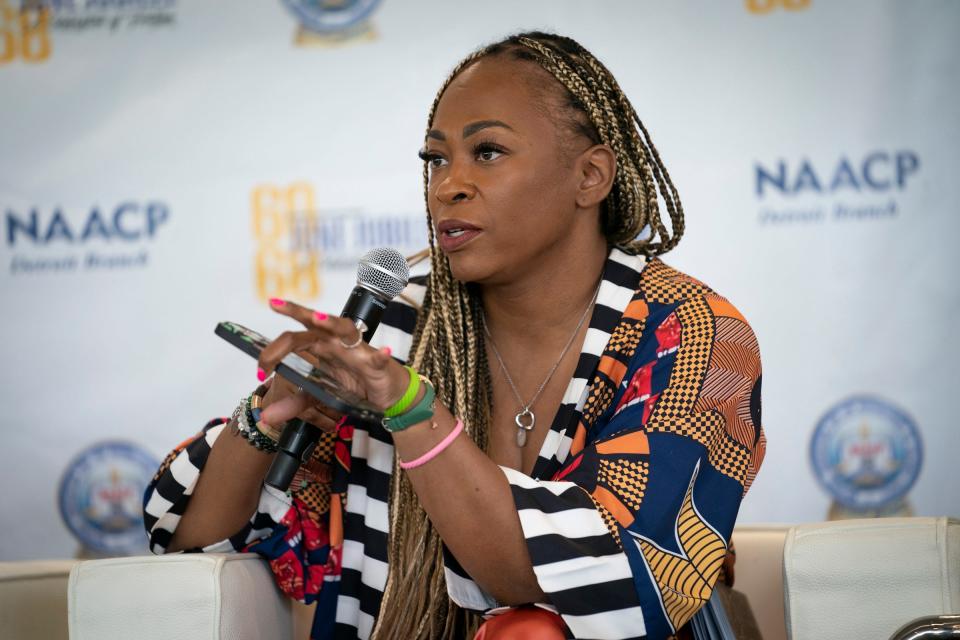
"Black households, Black borrowers are being denied across income levels," said Anika Goss, CEO of Detroit Future City. A report from the think tank found that in 2020, African American home purchase loan applicants were denied at twice the rate as white applicants.
Laura Grannemann, executive director of the Rocket Community Fund and the Gilbert Family Foundation, said Detroiters are also dealing with deteriorating home conditions and the lack of capital to make repairs.
Contact Nushrat: nrahman@freepress.com; 313-348-7558. Follow her on Twitter: @NushratR. Sign up for Bridge Detroit's newsletter. Become a Free Press subscriber.
This article originally appeared on Detroit Free Press: Here are 5 takeaways from the Detroit NAACP's Freedom Walk Summit

